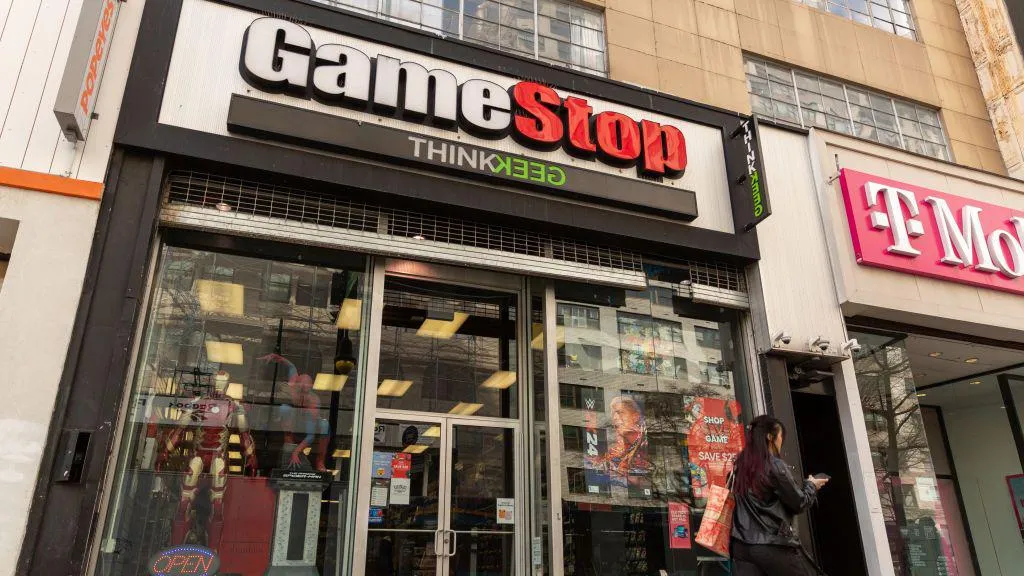
GameStop shares surge as 'Roaring Kitty' returns
Shares in GameStop, the video game retailer whose popularity among pandemic-era traders helped coin the idea of a meme stock, are surging again. Their rise follows the online reappearance of Keith Gill, known as "Roaring Kitty", who was credited with helping the struggling firm's shares explode in January 2021, contrary to the bets of many professional Wall Street firms. GameStop shares jumped more than 70% in morning trade on Monday, to more than $30, as investors piled into the stock. Though the price later fell a bit, it marked their highest level since 2022. Mr Gill was one of the most high-profile figures among the swarm of independent traders who swapped investment tips online and drove a buying frenzy for Gamestop and other firms, putting pressure on hedge funds who had been expecting the shares to fall. Shares in GameStop crashed back to earth within weeks. They have spent much of this year trading for less than $15 apiece, after the firm announced job cuts and a decline in sales at the end of last year. Why small investors are piling into share-trading GameStop: Who is winning the market battle? Why the GameStop story is far from over The story of the surprise rise in GameStop shares, which led to similar moves for other companies including Odeon Cinemas-owner AMC, sparked congressional hearings about market manipulation and inspired the 2023 movie "Dumb Money", which starred Paul Dano and Seth Rogen. Mr Gill told Congress he used social media for fun and called the idea he was pushing the shares on unwitting investors "preposterous". He has not posted on X, formerly known as Twitter, since mid 2021. Then on Sunday Mr Gill posted a drawing of a man leaning forward in a chair, as if gearing up for action. He later followed up with two posts on Monday morning, which appeared to allude to his return. The meme-stock phenomenon has been part of a wider increase in trading by retail investors - people not working for investment houses or other private firms. Analysts had argued the original rise of meme stocks was driven by the surge in savings and time many households had during the pandemic, thanks to government support programmes and the shutdown of many in-person activities. However with markets rising again this year, trading firms such as Charles Schwab and Robinhood have reported another uptick in new accounts and activity by retail investors.

